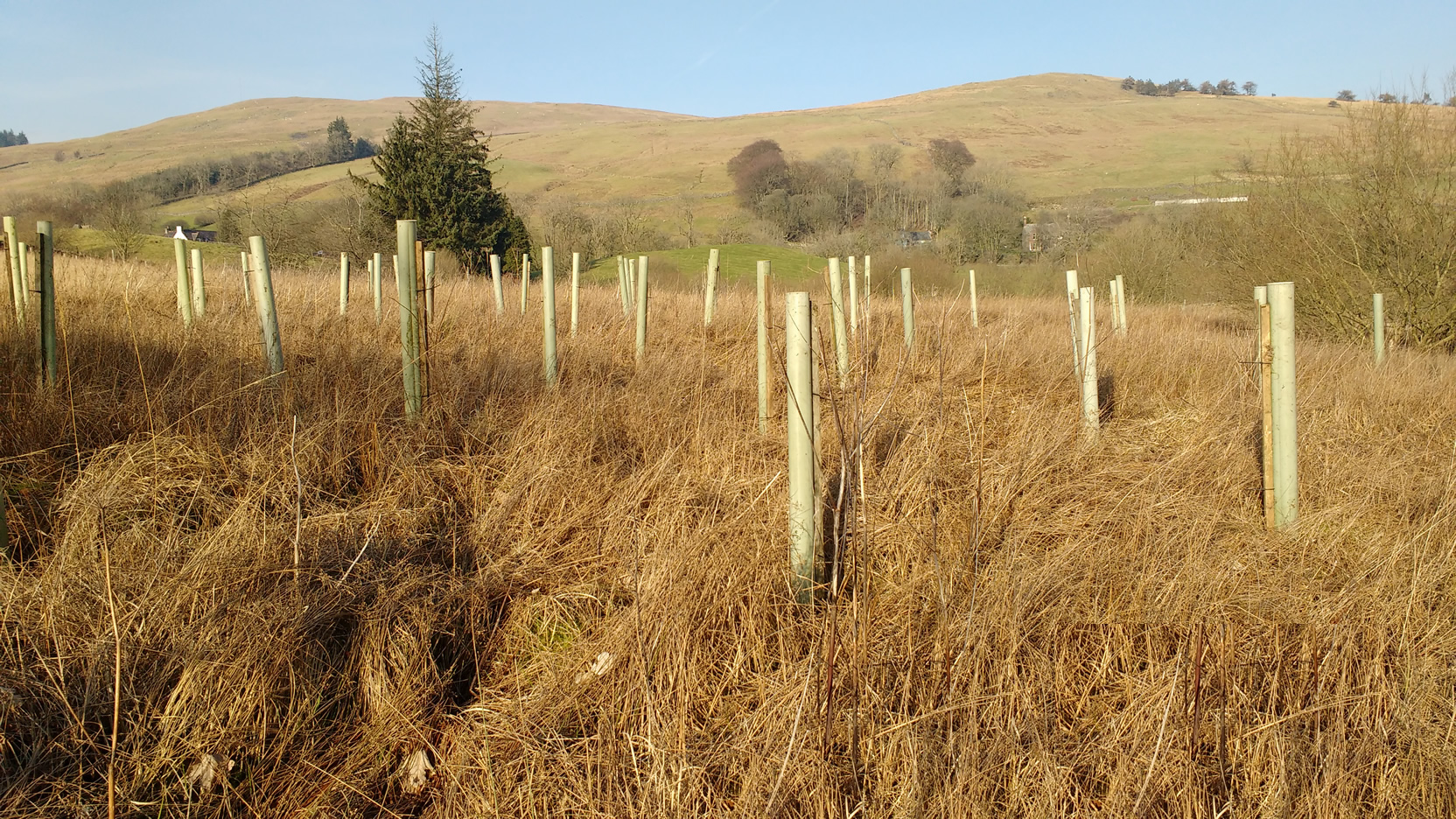
It has been a much better winter, so far, than last year.Our neighbour did remind me that we had not had the beast from the east by this time last year, but we had had plenty of snow. This year, in contrast, it has almost been spring like on occasions.
For us, this means we can get on with various outdoor tasks. Nicole has been busy making felted rugs (read more here), as well as getting the garden ready for the spring. Not to mention mucking out the sheep shelter.

My tasks tend to be more on the structural side. One of the things we get through a lot of here is wood. Our heating runs on it. Our predecessors bought lorry loads of wood along with our two neighbours and cut it up together, something we have carried on with since we moved here. But with all this land, I thought we should grow our own. We have plenty willow, but it’s quite hard to access. I will be trimming some of that next week. But, in the meantime, I have started a 5 year plan to plant hazel. 50 trees a year. The first 50 went in last week (you can see them in the top picture). In 5 or 6 years, they should be ready to harvest.
Hazel actually benefits from being cut back, it’s a classic “copse” tree. It grows back really quickly. So, with 50 a year, we should be able to harvest enough wood for the winter while , at the same time, remaining carbon neutral.
Continuing with the wood theme, in the winter storms, a willow tree did blow down near the front of the house. We were lucky in that it do no damage to anything.
I finally got round to chopping it up in January. A useful supply of logs for next winter. Many thanks to Nicole’s uncle Kurt (visiting from Switzerland) who helped me stack them.
 |  |
I am also continuing my background task of repairing stone dykes. We have a lot of stone dykes here and a few need attention. This is particularly true of those near the road. My goal is to repair them so far as I can. Sadly, on one corner, the previous owners allowed the walls to be trashed by a tree felling company and I can’t get at the stones as they are buried under branches.

Nevertheless, I shall plug away. Those same storms cause a part of the stone dyke bordering our hen run to collapse. I hadn’t heard of storms taking down walls before, but it also happened to a friend of one of Nicole’s gardening clients. I know this because she commissioned me to repair it, my first real stone dyke job for which I got paid.

Anyway, our chicken run wall was tilting a bit so took a bit of careful rebuilding. I am quite pleased with the result. This is especially so because the stones are quite large and it can be hard to get them to align properly. On the course, it was mostly small stones – dead easy.
I reckon I spend 4 times as long pondering which stone to use next as I do actually putting them in place.
Anyway, it’s quite satisfying work, especially on a nice, spring like winter day.





